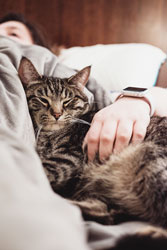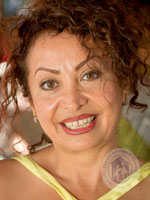End of Life Care Enables Elders to Die at Home with Dignity
What happens during the End of Life stage?
The process of dying is affected by many different things such as the presence of disease, underlying chronic conditions, dementia or infection (pneumonia). Although it’s really out of anyone’s hands, in general, Elders will die within three to seven days after they have stopped drinking fluids.
The following are the most common symptoms you will see:
Weakness and fatigue
You will notice your Loved One becoming progressively weaker and sleepier as the dying process advances. Sometimes there’s restlessness and joints may become uncomfortable, if they are not moved regularly. Gentle exercise and soft massage can be helpful, along with adequate cushioning under bony areas and between skin surfaces (eg between legs) to make turning more comfortable.
Control of pain
In our experience, pain can be controlled with various drugs. Morphine is most commonly used and is excellent. It blocks most pain and helps with breathing difficulties while giving a slight euphoria [a feeling of happiness or a peaceful mind].

If there is an increase in your elderly loved one’s level of pain or agitation, please contact Daughterly Care immediately, no matter what time of day or night. The Palliative Care Team have likely left additional pain control medication that can be given pro re nata i.e. as needed. We can talk you through the administration process or send a Registered Nurse. Paid Caregivers cannot legally administer medication on a pro re nata basis.
In the 27 years of providing End of Life care for Elders, only 2 clients have experienced pain that could not be controlled at home. Both the clients’ GP / Doctors would not allow the Community Palliative Care Team to be on-board. In this instance, we recommended the 2 clients go to hospital for their pain management. As a result of those two cases when a GP tells our client or us that the Community Palliative Care Team is not needed, or the family do not want to register with the Community Palliative Care Team, we cannot continue to provide care.
Reduced intake
It is normal for an older person to lose his/her appetite and take in less food and water as the body begins to shut down. Once someone is no longer able to swallow any liquid, they dehydrate and will die within approximately a week (although more commonly 3 days). Once the Elder is unable to swallow, it’s important for families and Caregivers to stop trying to feed the person. This includes liquids because this will only cause aspiration (food/fluids going into the lungs), choking and greater distress.
Is dehydration painful?
Families are often afraid that dehydration will be painful for the dying. The only discomfort however is associated with a dry mouth. End of Life dehydration can actually produce a mild euphoria, just like morphine. It is okay to offer your Loved One sips of water or juice if they’re alert enough to swallow. Once they stop drinking however, just moisten and clean their mouth with swabs and keep their lips lubricated (often people like to suck on ice).
Poor circulation
As your Elderly Loved One becomes less mobile and dehydrated, it’s normal to see cooling of the extremities with skin discoloration (dark purple) and a drop in blood pressure.
Confusion
Most Elders become progressively sleepier and die quietly. However, others can become quite confused and have “terminal delirium” – moaning, restlessness and agitation. This can be distressing to everyone, although it is not an indication that the dying person is necessarily experiencing pain. In some cases the drugs for treating pain can cause this confusion and need to be reviewed by the Community Palliative Care Doctor. Other medications are available to help with agitation, anxiety and extreme restlessness.

Sometimes the dying will have hallucinations – they may see family, friends or pets who passed away and are not there. These have been described as “Nearing Death Awareness” episodes and are not usually frightening for them and do not need to be treated. In fact, it can be comforting for the person to describe what they see.
Decreased communication
Sometimes families get distressed by not being able to effectively talk with their Loved One. Even though the dying Elder may appear asleep or not responding, he/she can still be aware of what’s going on and hear what is being said. It is a good idea to sit and hold your Elderly Loved One’s hand and talk as if they understand you. Talk about the past and the good times they have experienced. Thank them for the good times and their love. Remember hearing is the last sense to go, only say what you want your Loved One to hear.
Breathing changes
As death approaches, your Loved One’s breathing may become deeper, slower and then stop altogether. It can then resume the same sequence again (Cheyne-Stoking). Some Elders will have a constant, shallow breathing pattern. All this is normal, they are not “suffocating“. Often, a small dose of morphine will help reduce any apparent breathing distress.
Secretions and gurgling sounds
A dying person may have gurgling sounds coming from his/her chest, these sounds can become very loud (death rattles). This is a normal part of the dying process and is due to the decrease of fluid intake and an inability to cough up normal secretions. Suctioning is not recommended and usually only increases the secretions and causes sharp discomfort. Gently turn the person’s head to the side and allow gravity to drain the secretions, wipe the mouth gently with a moist cloth. Medication is also available to help dry up these secretions if desired.
Loss of bowel/bladder control
The dying Elder sometimes loses control of their bowel and bladder. As they eat and drink very little towards the end, usually extra padding is needed.
Eyes won’t close
Sometimes the dying can’t close their eyes. This is due to dehydration and the lids can’t cover the eyes. If the eye is irritated, some lubricant ointment can be used.
Most importantly, remember that you are not expected to provide End of Life care alone. You have the support of our team of Nurses, Caregivers, the Community Palliative Care Doctors and Nurses, and the client’s GP.

Jennifer Smith, Registered Nurse, Master of Social Work and Advanced Diploma in Mental Health Nursing.
Jenny has over 21 years’ aged care experience; 6 years as a Coordinator for Home Care Service of NSW. Jenny has a Masters Degree in Social Work, is a Registered Nurse and has an Advanced Diploma in Mental Health Nursing. Jenny has a special interest in dementia/delirium as well as palliative care.

18 May 2015 – Praise for our In Home Care services provided by our Caregiver Fairy
“When I went into Mum’s room (the day before she died) Fairy was sitting quietly, gently massaging lanolin into mum’s arms and hands.
Mum looked so peaceful and relaxed and was obviously enjoying every minute of it! Fairy was a God Send at a time when I was feeling a bit lost and alone. Fairy knew how to connect with Mum without even talking to her (she was in and out of consciousness at this stage).”
For information on Daughterly Care’s experienced Palliative Care services, click here.

